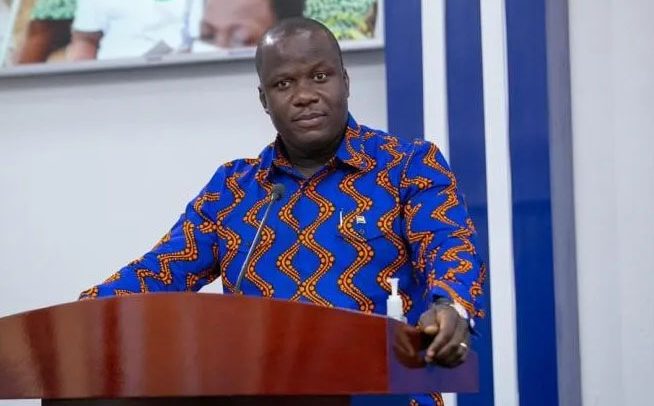Samuel A. Jinapor
Minister for Lands and Natural Resources, Samuel A. Jinapor, has touted the country’s green metals calling on investors to partner the government for a sustainable and mutually beneficial exploration.
Speaking at the 20th edition of the African Down Under Conference, held in Perth, Western Australia, Mr. Jinapor said the country is ready to diversify its mineral resource base.
He indicated that the green transition, which requires green metals to produce batteries to replace fossil fuel dependent vehicles, makes the diversification even more imminent.
“Luckily, we are endowed with most of these green minerals such as lithium, cobalt, nickel, graphite, rare earth elements (REE), iron, copper, and phosphate, which are yet to be explored. Already, the Australian company, Atlantic Lithium is involved in the exploration of lithium,” he disclosed.
Mr. Jinapor said the government’s policy for the development of these minerals is to pursue a path that fosters optimal socio-economic development, through effectively and efficiently exploiting and managing Ghana’s green minerals.
“We want to contribute positively to dealing with the climate change phenomena, working towards the net zero emission target, and collaborating with other relevant stakeholders in employing climate-friendly technologies and practices, to achieve the maximum developmental impact for the country,” he noted.
He said in the last few years, the government has prioritised improving the business environment through regulatory reforms, to reduce bureaucracies and bottlenecks associated with doing business in the country.
“These have led to the introduction of a Mineral Cadastral Administration System (MCAS) to improve mineral licensing administration.
“This system, together with the online application for mineral rights, improved access to information and transparency in administration, has improved the ease of doing business in the mining industry in Ghana,” he stated.
He further noted that the laws of the country have several provisions that make the mining sector in Ghana investor friendly. These, he said, included stability clauses that insulate investors from changes in laws and policies after the acquisition of their mineral rights; respect for the sanctity of contracts and accrued rights; capitalisation of expenditure on reconnaissance and prospecting; exemption from the payment of import duties for plants and machinery imported for mineral operations; and transferability of capital.
“We are, therefore, committed to work with all stakeholders to retain the full value chain of these “minerals of the future” in our country by adding value to the minerals mined, and thereby contributing significantly to the global transition.
“The mining sector in Ghana remains huge, and the strong political stability, anchored on a vibrant democratic culture, makes her conducive for investment. Our goal is to make Ghana the mining hub of Africa, where all mining and mining-related activities, from exploration to downstream production, and from research to innovation, will be centred.
“We do all these in an atmosphere of transparency and in accord with the highest standards of integrity,” he added.
BY Jamila Akweley Okertchiri


